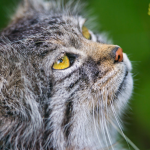As the holidays draw near, it’s a time for joyous celebrations, decorations, and indulgent feasts. Yet, amidst the festivities, many elements of this season pose potential risks to our beloved pets. From decorations to seasonal foods, it’s crucial to be aware of these hazards to keep our furry friends safe and healthy.
1. Fatty Foods: While the holidays often mean indulging in rich and savory dishes, these indulgences can trigger pancreatitis or upset stomachs in pets. Refraining from sharing these treats with your pets is essential to avoid health issues.
2. Chocolate: A favorite holiday treat for many, chocolate can be toxic to pets, causing severe symptoms like vomiting, diarrhea, muscle tremors, seizures, and even heart failure. Ensuring pets are kept away from any chocolate is crucial for their well-being.
3. Grapes and Raisins: Despite their holiday presence in fruit plates or baked goods, grapes and raisins are known to induce acute kidney failure in dogs and pose a risk to cats, making it vital to keep them out of pets’ reach.
4. Sugar-Free Candies with Xylitol: Commonly found in sugar-free treats, xylitol can lead to low blood sugar levels and liver failure in dogs, highlighting the importance of avoiding such items for pets.
5. Onions and Garlic: These ingredients, often part of holiday dishes, can adversely affect red blood cells and cause anemia, particularly in cats, warranting their exclusion from pets’ diets.
6. Meat Bones: While dogs may enjoy chewing on bones, cooked ones can splinter and cause gastrointestinal injuries or blockages. It’s best to refrain from giving pets cooked bones altogether.
7. Alcohol: Alcohol consumption by pets can result in severe health issues, including low blood pressure, body temperature, seizures, comas, and even death. Preventing pets’ access to alcohol is crucial for their safety.
8. Poinsettias: Though causing mild irritation and gastrointestinal discomfort, these plants should still be kept away from pets to prevent any potential discomfort.
9. Lilies: Even tiny amounts of certain lilies can lead to kidney failure in cats, making it essential to avoid exposure to these plants for feline friends.
10. Holly and Mistletoe: Ingestion of these plants can lead to gastrointestinal distress, hypotension, seizures, and in severe cases, fatalities. Keeping them out of pets’ reach is imperative.
11. Candles, Ornaments, and Decorations: Ensuring pets cannot access open flames, breakable ornaments, tinsel, or ribbons helps prevent potential injuries, choking hazards, or digestive obstructions.
12. Electrical Hazards: Live cords can pose significant dangers to pets if chewed, potentially causing burns, seizures, or worse. Keeping cords out of reach is vital.
13. Household Changes: Increased activity during gatherings can stress pets, while visitors’ belongings might contain items hazardous to pets, necessitating cautious supervision.
14. Environmental Hazards: With heaters, fireplaces, and cleaning supplies in use, ensuring pets are kept away from these potential dangers is crucial to their safety.
By being mindful of these potential risks and taking proactive measures to safeguard pets from holiday hazards, pet parents can ensure a festive and safe season for their furry companions.




